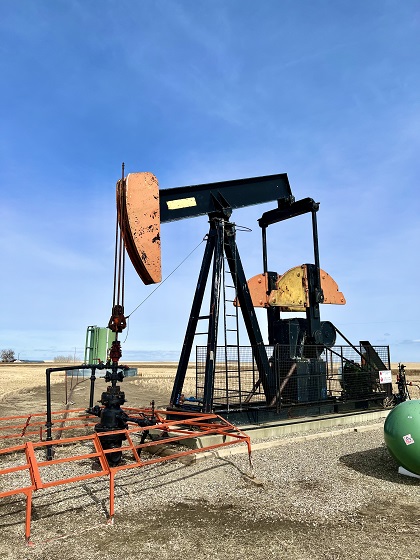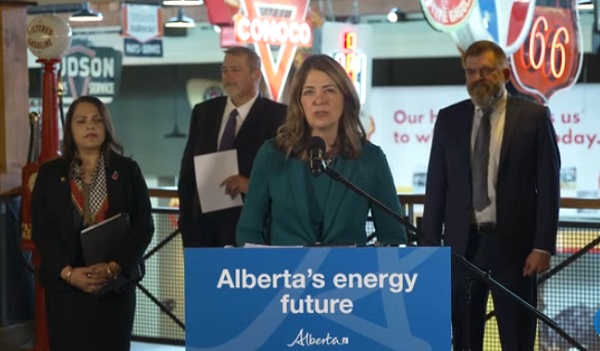Bruce Dowbiggin
Canada Day 2025: It’s Time For Boomers To Let The Kids Lead

So how did you spend your first Canada Day under new PM Mark Carney? If you’re CBC, freed from the clutches of Pierre Poilievere, you do a fawning interview with ex-pat comedian Mike Myers, whose Elbows Up appearance on Saturday Night Live and whose partisan hockey sweater appearance with Carney were pivotal moments in the recent election. (Saving CBC from drastic budget cuts— not that they mentioned it.)
After Donald Trump’s bellicose 51st state comments, Myers’ nostalgic harkening to the days of Gordie Howe and Mr. Dressup pivoted Boomers’ voter preferences in Canada. Soft Quebec sovereigntists petrified by Trump abandoned the Bloc for the Liberals. Progressives ditched the NDP for the Grits. And some wobbly Conservatives moved to Carney’s side, too, after the charm offensive by Myers, who hasn’t lived in Canada since the 1980s.

The result? Liberals vaulted 20 points in the polls and barely missed a majority in their fourth consecutive election win. Boomers were exultant. Their subsidized media was joyous. And the rest of the world asked if Canada was a serious country after the Libs naked substitution of Carney for the loathed Justin Trudeau. After all, hadn’t the U.S. Democrats tried the same thing and been summarily spanked by voters?
More to the point, had Canadian voters missed a great opportunity by sticking their heads in the ground on Chinese gangs using Canada as a drug launch pad, Canadian banks being fined billons for money laundering, immigration flooding social services, cratering GDP and Palestinian protests clogging the streets?
This at a time when the under-50 generation has lost faith in its destiny within Canada. As we wrote in March why are 43 percent of 18-36 male CDNs telling pollsters they would accept U.S. citizenship if they were guaranteed full rights and financial protections? Where upper-class products of liberal education— the future professional class— have taken to wearing keffiyehs to the convocations and demonstrations. Where housing is an unattainable goal in most major Canadian urban centres.
It’s not hard to see them looking at the Mike Myers obsession with a long-gone Canada and saying let’s get out of here. The signs are there. Recently former TVOntario host Steve Pakin attended two convocations. The first at the former Ryerson University, which switched its name to Toronto Metropolitan University in a fit of settler colonizer guilt. The second at Queens University, traditionally one of the elite schools in the nation. Here’s what he saw.
“At the end of the (TMU) convocation, when Charles Falzon, on his final day as dean of TMU’s Creative School, asked students to stand and sing the national anthem, many refused. They remained seated. Then, when the singing began, it was abundantly noticeable that almost none of the students sang along. And it wasn’t because they didn’t know the words, which were projected on a big screen. The unhappy looks on their faces clearly indicated a different, more political, explanation.

“I asked some of the TMU staff about it after the ceremony was over, and they confirmed what I saw happens all the time at convocations. Then I texted the president of another Ontario university who agreed: this is a common phenomenon among this generation at post-secondary institutions.”
At Queens, where Canadian flags were almost non-existent, O Canada was sung, but the message of unrest was clear: “Convocation sends a message of social stability,” Queen’s principal Patrick Deane began in his speech. “It is a ceremony shaped in history. You should value your connection to the past, but question that inheritance. Focus on the kind of society you’d like to inhabit.”
You can bet Deane is not telling them to question climate change and trans rights. As Paikin observes, “if we fail to create a more perfect union, we shouldn’t be surprised when a vast swath of young people don’t sing our anthem the way so many of the rest of us do.” So why are the best and brightest so reluctant to see as future in becoming the new professional class that runs society?
In the Free Press River Page searched the source of their discontent. “If the Great Recession, Covid-19, and the spectre of an artificial intelligence-assisted ‘white collar bloodbath’ has taught the professional class anything, it is that their credentials cannot save them. This insecurity, compounded by the outrageous cost of living in many large cities, has pushed the PMC’s anxieties to the breaking point.
“Add that to the triumph of identity politics in professional class institutions like universities, corporate C-suites, non-governmental organizations, and media—itself a byproduct of inter-elite competition as many have observed—and what you have is the modern left.
“… they’ve already come to the baffling conclusion that there’s no difference between class struggle and child sex changes. More to the point, the socialist mantra “From each according to his ability, to each according to his need” has only ever stood the test of time in Anabaptist sects. It requires a religious devotion to self-sacrifice that is not characteristic of this anxious and hyper-competitive class—as many actual socialists have spent the last decade warning.”

As we wrote in March Boomer nostalgia is a dead end. “It’s time that Canada’s aging elite ceded a greater voice in the national debate to younger voices. They need an intervention of the type Trump is now performing on Canadians addicted to sitting in first class but paying economy. He brought them into a room with the chairs and levelled with them about getting the free stuff they assumed was their right. Defence, security, trade, medical access. He’s the first president to do this in half a century.
And like all people addicted, CDN Boomers don’t want the truth. They want performance theatre, T-shirts and hockey games. They blame Trump for their predicament, caught between grim realities. Will they take the 12 steps? Or will their kids have to tell them the facts as they escort them to the home?” Because we’re now seeing the likely answer to that question everywhere in Canadian society.
Bruce Dowbiggin @dowbboy is the editor of Not The Public Broadcaster A two-time winner of the Gemini Award as Canada’s top television sports broadcaster, his new book Deal With It: The Trades That Stunned The NHL And Changed hockey is now available on Amazon. Inexact Science: The Six Most Compelling Draft Years In NHL History, his previous book with his son Evan, was voted the seventh-best professional hockey book of all time by bookauthority.org . His 2004 book Money Players was voted sixth best on the same list, and is available via brucedowbigginbooks.ca.
Alberta
In Federal vs Provincial Battles, Ontario In No Longer A Great Ally For Alberta

Alberta Could Make A Deal With Bill Davis’ Ontario. Just One Problem.
Last month my friend Steve Paikin and I did a public appearance at the lovely Oshawa Town Square, recalling the highlights of our careers and the stories behind the stories. One of Steve’s stories was the subject of one of his 847 books, Bill Davis, the former premier of Ontario from 1971-1985.
He came to power the year our family moved to Ontario, so we watched his arc in power, from centrist Conservative to key figure in the interminable constitutional wrangles of the time. He typified a no-drama approach long before Barack Obama adopted it. His most controversial move was granting equal funding to Catholic schools. And smoking a pipe.
Which led me to ask Steve, the Most Ontario Man In The World, if it was still the same “place to stand, place to grow” province that Davis ruled. If anyone should know, the former TV Ontario stalwart was likely that person. Steve said that, generally, he felt that it was similar to what existed in the 70s and 80s. Obviously there were changes, but the mood was similar. After all, they’d elected Conservative Doug Ford three times.
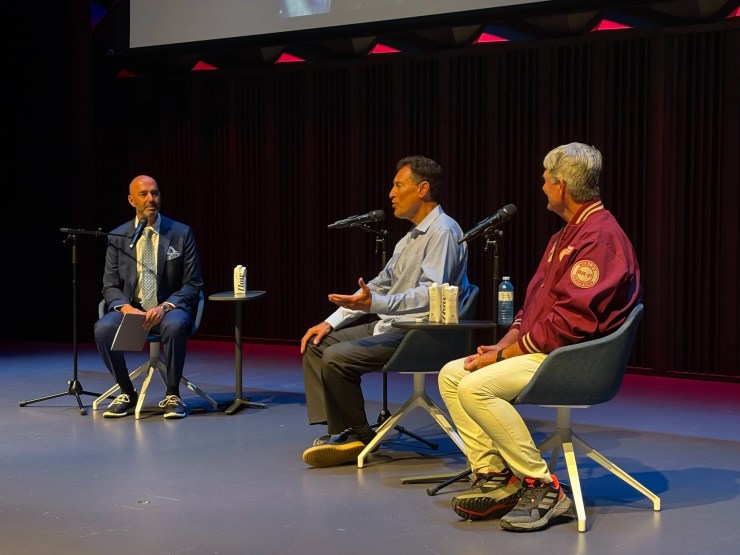
My response? That would make Alberta very happy. Alberta could make a deal with Bill Davis’ Ontario. Why? A Bill Davis Ontario would never tell another province to keep its oil in the ground, to hobble its economy to suit climate obsessions in his own province. A Bill Davis Ontario would support nation-building projects like trans-Canada pipelines not forcing Alberta to sell their oil at a discount to the U.S. A Bill Davis Ontario would never support gun seizures from law-abiding owners.
With respect, Steve, the Bill Davis Ontario is no more. There is no deal to be made at the moment. It is a place captured by the globalist fevers of Great Thunberg climate. It is a province in the thrall of liberal indigenous guilt marinated by its teachers and media. It is a province whose real-estate bubble is poisoning the national economy.
It is a province where politicians and leaders struggle to define a woman. Worst of all, Ontario returned an incompetent trust fund flibberty-gibbet not once, but three times as prime minister. The damage to the nation has been incalculable. Now they’ve elected his economic advisor.
And yet many of our Eastern friends believe that we are the ones who’ve have changed. They tell us we have drunk the cowboy Kool-aid and are now irredeemable. What they mean is, you’re become a traitor to your class. “Down the rabbit hole”. Cast out for being a Bill Davis centrist.
But we have not changed. Much of Alberta’s culture has not changed significantly, despite an NDP episode in government from 2012-15. Bill Davis, who died in 2021, would not find much change outside of the immigrants dropped on it by Justin Trudeau were he to visit today.
But eastern Canada? The whiplash changes might best be summed up by Vince Gasparro, the Liberal MP for a midtown Toronto riding, claiming that Canada’s economy is swell compared to other nations. To which the interim parliamentary budget officer Jason Jacques said just because someone else is 450 pounds and sick doesn’t mean an obese 350-pound person is healthy.

Forecasting a conservative $68.5 billion deficit, Jacques called the economy “unsustainable” and said the nation is at the precipice. “We’re at a point where, based upon our numbers, things cannot continue as they are, and I think everybody knows that,” Jacques said, He was immediately attacked by Liberal bot-world claiming he’s angling for a job with the Conservatives.
The closing of the Laurentian mind reflects what happened to the NDP, the party of Tommy Douglas. Once a national lean-left collection of union workers, farmers, culture figures and academics, it took its lead from the avuncular Ed Broadbent, Audrey McLaughlin and even Jack Layton. Socialist with a friendly face. The leaders calmed the Marxist fevers of their radical fringe.
Then, in the aftermath of Layton’s death, the party convulsed. The union workers and farmers were pushed out by radicals drunk on virtue. Under the DEI hire Jagmeet Singh they purged common sense, leaving Liberals to scoop up their less unhinged members. The survivors of Jagmeet wore keffiyehs in Parliament and predicted environmental doom. The party became irrelevant in 95 percent of the nation.
Their reward was a descent from 103 seats in the 2011 election to non-party status with just seven seats and six percent of the vote this year. While they make noises of relevance, they are now like the Monty Python “Bring out yer’ dead” skit in Search For The Holy Grail.
Which is gravy for the Carney Liberals who can now talk centre but govern as far left as it wishes. Which the Toronto Star says may soon include criminalizing residential school “denialism.” The author Michelle Good says that questioning the unsupported tales of murdered babies is just like “holocaust denial”.
The NDP collapse mirrors what is happening to the Democratic Party in the U.S. By design or by accident Donald Trump has bludgeoned them into assuming most of the policies that are now putting a torpedo into the NDP. Defending crime, endorsing unfettered illegal immigration, patronizing Hamas and other bad actors on the world stage, Balkan economics. Hollywood preening.
While the reviled Trump remains unrepentant, Democrats continue to sink in the polls. Married to California values they’re at 28 percent approval in the polls, and none of their potential 2028 presidential hopefuls is adding anyone to the base.
So the DEMs leadership intimidates its followers with this fatal equation, claiming to be the party of the future. There are a scarce few who remind their colleagues of what’s been lost. Pennsylvania senator John Fetterman who won his crucial seat despite enduring a stroke during the election run-up, is sounding warnings, however.

“Unchecked extreme rhetoric, like labels as Hitler or fascist, will foment more extreme outcomes,” Fetterman wrote. “Political violence is always wrong — no exceptions. We must all turn the temperature down.”
“Absolutely, it’s a reward for Hamas,” he said after Canada and other nations recognized a Palestinian state. “That’s going to be their narrative. They’re going to claim ‘That’s why we did 10/7. That birthed our nation,’ and I can’t ever give that to them.”

But his fellow party members are too engrossed in Jimmy Kimmel’s veneration at BlueSky, the Woke site, to notice that their base has deserted them. Canada’s liberals looking over the edge still get their reinforcement from like-minded people and a bribed media. But as Jacques says, the end is nigh, and everyone knows it.
Bruce Dowbiggin @dowbboy is the editor of Not The Public Broadcaster A two-time winner of the Gemini Award as Canada’s top television sports broadcaster, his new book Deal With It: The Trades That Stunned The NHL And Changed hockey is now available on Amazon. Inexact Science: The Six Most Compelling Draft Years In NHL History, his previous book with his son Evan, was voted the seventh-best professional hockey book of all time by bookauthority.org . His 2004 book Money Players was voted sixth best on the same list, and is available via brucedowbigginbooks.ca.
Bruce Dowbiggin
The McDavid Dilemma: Edmonton Faces Another Big Mess
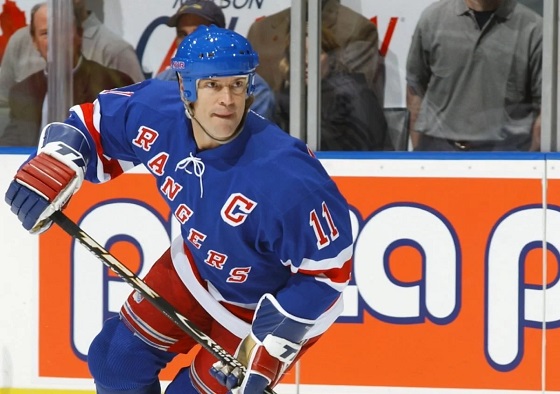
The 2025-26 NHL season opens this week with one overriding issue: Connor McDavid. Will the best player in this generation stay in Edmonton or go elsewhere? It’s a question that will be asked every day till the playoffs end or McDavid is traded. Naturally Edmonton is having a meltdown. Some are resigned to losing him. Others feel he could sign a bridge deal.
When it comes to losing their stars, Oilers City has been there before. The trade that always gets top billing is the 1988 Gretzky deal to the L.A. Kings, the seismic re-organization of hockey in the late 20th century. Less talked about— but more impactful on the ice— was a trade made this week in 1991 that sent Mark Messier to the New York Rangers. Messier led the Rangers their first Stanley Cup in 1994— their first since 1940. Gretzky never won a Cup away from Edmonton.
Here’s how Messier described the deal in our most recent book Deal With It: The Tales That Stunned The NHL & Changed Hockey:
Calling up GM Glen Sather a couple of months after the 1991 postseason ended to tell him he wanted to move, Messier years later recalled “phoning him was a tough thing. I think it was mid-July. I’d been thinking of this for a while. It wasn’t just the money. I’ve made it clear their offer was pretty good. Certainly enough, where I’d never have to worry again… But I had a gut feeling I wanted to make a change, to go. To try for a new challenge and grow a bit.”
Both sides knew it was just business of course. Messier was correct in assuming he would not enjoy anything close to a sixth Cup if he stayed for a lucrative offer in Edmonton.
“I was delighted with Mark,” Sather would admit about the parting of ways. “He’s a terrific guy to be with and a great player, and it’s sad for me to have to trade him. But it becomes more complicated than that, because of what we’re trying to do here now. I don’t want to be caught in a situation where we’re going to be struggling for five or six years, depending on the draft to get us competitive again. If you analyze the way teams in this league have worked, they’ve all run on cycles. You peak for three or four years, and then go downhill and try to get back up again. And if you don’t trade players you can recover with, then you’re never going to recover. You only have so many assets to make deals with.
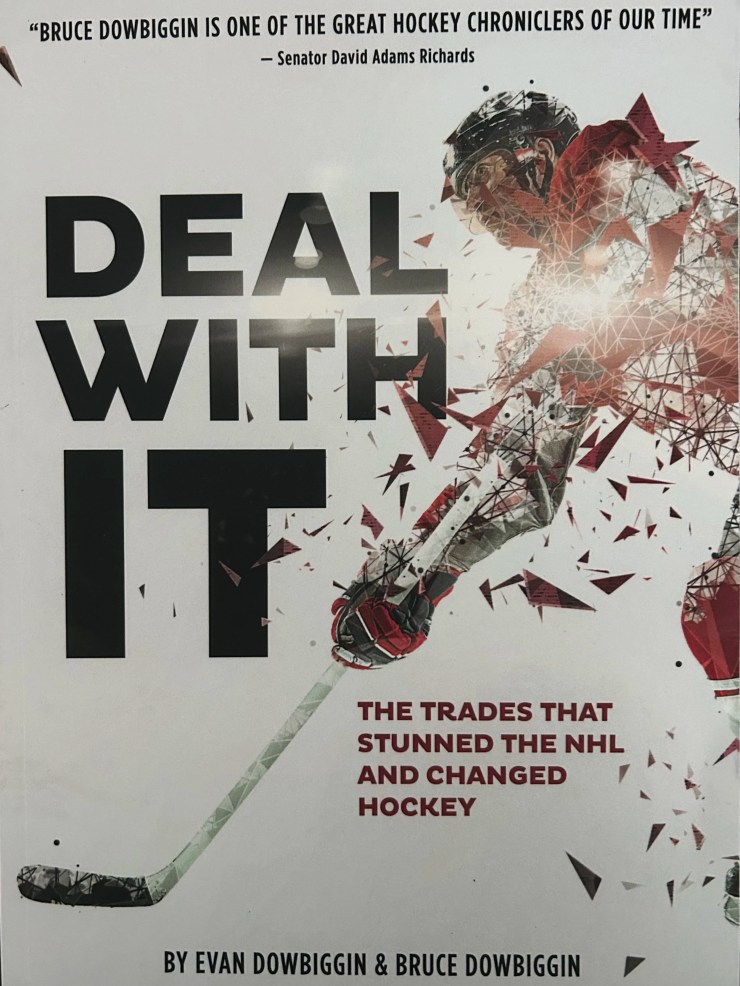
Neil Smith, the Rangers general manager who had seen his team endure back-to- back playoff disappointments (beaten both times by the Capitals), got wind of the possibility of landing the great “Moose” over the summer that year. Haggling for weeks toward an eventual deal, Sather would later point out the discrepancies between markets that were tearing apart the NHL at that time, bemoaning that “Maybe they’ll pay (Mark) in New York, maybe Mark is the kind of guy that can attract enough attention to do that. I mean, he’s going to be the matinee idol, he’s Madison Avenue, he’ll be terrific there. He’s the first big superstar they’ve had since Rod Gilbert, so they can afford to pay him whatever they want to pay. We don’t have MSG behind us.”
Edmonton’s training camp in 1991 went on with Messier absent, while he headed to Hilton Head to play golf with his father and brother following the 1991 Canada Cup win. Messier’s sabbatical in the sun ended on the day Edmonton’s season had started. On October 4, 1991, Messier got the call on the 16th tee box at Palmetto Dunes in South Carolina. It was Sather telling him he was headed to Broadway. In the deal, Bernie Nicholls, Steven Rice, Louie DeBrusk and future considerations (completed when the Rangers snagged Jeff Beukeboom for David Shaw) would be coming over in exchange for the vaunted Oiler captain. In the aftermath, an elated Smith hyperbolically called it “the biggest day in the 66-year history of the New York Rangers.” Hundreds and hundreds of miles away to the Northwest, reactions were considerably less enthusiastic.”

The rest was legend. With the media pressure and criticism mounting in the 1994 Conference Final, Messier was asked before the pivotal Game 6 matchup if he guaranteed a win. Responding, “Yes, we will win tonight,” he made what seemed like an innocuous comment at the time. But it was used by a NYC sports media that still lionized when “Broadway” Joe Namath had guaranteed his Jets would pull off the upset of the Baltimore Colts in Super Bowl III in 1969. Newspaper headlines honed in on Messier’s “bold guarantee.” The bravado would fall flatter than a pancake if this bulletin-board quote instead got the Rangers eliminated. Instead, Messier’s performance solidified his legacy as one of the great leaders/captains the sport had ever seen.” And the Rangers carried off the Cup, besting longtime whipping boys Vancouver in seven games.
Will McDavid win a Cup in Edmonton in 2026? Will he, like Messier, get his Cup with a large market team? Or will he be like Gretzky, doomed to play for three more teams without the big prize? This week we start the engines on Edmonton’s worst nightmare.
Bruce Dowbiggin @dowbboy is the editor of Not The Public Broadcaster A two-time winner of the Gemini Award as Canada’s top television sports broadcaster, his new book Deal With It: The Trades That Stunned The NHL And Changed hockey is now available on Amazon. Inexact Science: The Six Most Compelling Draft Years In NHL History, his previous book with his son Evan, was voted the seventh-best professional hockey book of all time by bookauthority.org . His 2004 book Money Players was voted sixth best on the same list, and is available via brucedowbigginbooks.ca.
-

 Artificial Intelligence2 days ago
Artificial Intelligence2 days agoThe App That Pays You to Give Away Your Voice
-

 National54 mins ago
National54 mins agoCanada’s birth rate plummets to an all-time low
-

 Health2 days ago
Health2 days agoThe Religious Faith in Vaccines has been Challenged, Forcing New Studies and More Rigorous Standards
-

 Agriculture17 hours ago
Agriculture17 hours agoCarney’s nation-building plan forgets food
-

 Fraser Institute18 hours ago
Fraser Institute18 hours agoAboriginal rights now more constitutionally powerful than any Charter right
-

 Alberta19 hours ago
Alberta19 hours agoAlberta puts pressure on the federal government’s euthanasia regime
-

 Business3 hours ago
Business3 hours agoElon Musk announces ‘Grokipedia’ project after Tucker Carlson highlights Wikipedia bias
-

 Crime26 mins ago
Crime26 mins agoPierre Poilievre says Christians may be ‘number one’ target of hate violence in Canada


